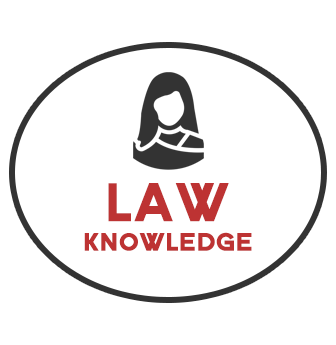Landlord licensing
Checking whether licensedIs a house with three storey’s and occupied by five students sharing requires an HMO license. There are no locks on the bedroom doors and the kitchen and two bathrooms are shared. The house is their main residence and none of the girls are related. They have each signed an individual tenancy agreement and there landlord is not endorsed by the local university. How can we find out if the landlord has the type of licence required as I understand this varies depending on which local authority it comes under? I would say it certainly should have a licence, and in this case, because of the numbers involved, it would be a mandatory licence. The law changed in 2006 and student properties, which had always been exempt from certain property standard requirements, came under the law. If you are a landlord, speak to your local Environmental Services; our service is always more interested in landlords bringing properties up to standard, rather than punitive action. If you are tenants, discuss with the university accommodation officer, not because it has endorsed the landlord, which it has not, but because it should be very clear on the law. If not, then go to Environmental Services yourself and they will advise and, if necessary, take action on your behalf. Less than four peopleI understand from my local authority that self contained flats with less than four people sharing do not now need a licence even though the building itself is three storeys high. Is this correct? And do I require electric certificates for each flat? I know that I need a gas certificate. Discuss this with your local environmental services – you do not require a licence but you may need a electrical certificate for the property, if not each individual flat. Alarms would need to be hard-wired, of course. I know Environmental Services have, in the past, been seen as the enemy to private landlords, but they are having to work a lot more closely with them because they provide much-needed accommodation. I think you will find they are helpful and happy to work with you and clarify any issues you have. Do I need a licence?I have just converted a property from a three to a five bedroom house and added an additional bathroom. It is only two floors, ground and first. I am going to rent the house as a whole, such that there is only one tenancy agreement. Most likely one or two people will become joint tenants and take full responsibility for filling the rest of the house and paying the rent. Do I have to get a licence/declare myself as an HMO landlord? What if five people signed a joint and several tenancy agreements? If I went down the route of renting out each room separately, I take it I would have to register? The house is in Cambridge Until last year letting on one agreement would have escaped licensing. However, last year, new laws came into force and now all houses with five or more unrelated tenants count as houses in multiple occupation. Not all require licences although many universities and local authorities have their own rules related to accreditation schemes. The wider definintion of HMOs covers: In each case the property must be used as the tenants’ only or main residence and it should be used solely or mainly to house tenants. Properties let to students and migrant workers are treated as such tenants’ only or main residence, and the same applies to properties used as domestic refuges. All of these properties could be subject to mandatory or additional licensing requirements, but not all are. It is only those that are of three or more storeys with five or more occupants that in fact require a licence. I suggest discussing required standards with your local Environmental Services and with your local accreditation schemes – they will ensure you meet all the requirements. I would ensure that all the people living in your property were signatories to your tenancy agreement, be it an individual agreement for each person or a joint tenancy. The difference is that if five sign a joint tenancy agreement and one moves out, the other four must either pay the fifth person’s rent or find a new tenant to introduce to you. If they have individual agreements and one moves out, they have no responsibility for the rent for the fifth room.. Could you advise me what the new legislation is with regards to certificates if you are the landlord? I saw somewhere about a £20k fine if you don’t have one. (I know about the gas safety check one already). I believe it is due to come into effect in mid July 2006. If your property is likely to come into the mandatory licensing bracket (five or more occupants, three or more storeys, and shared amenities) you will have to provide a five year electrical safety certificate. If your property will not require a licence, then the only other reason you may require an electrical safety certificate is because it is a requirement of your local accreditation scheme. Thinking of lettingh6> I am thinking of letting my two bedroom house through a lettings agency to which I will pay a monthly fee. I am aware I have to obtain a gas certificate and electric certificate but have also heard that there is a landlords’ licence and a fine of up to £20,000 fine if you don’t have it. Please can you advise me on how to obtain one if I do need one. As you can see from the answer above, it is unlikely that your property would require a licence, but my advice is always the same – if in doubt, contact Environmental Health who will set your mind at rest. Your agents should also be up to speed on this and should be able to advise – it is what you are paying for, surely? How many tenants?I am confused over the issue of whether a resident landlord with two tenants is categorised as HMO. I currently live in a three storey (six bedroom) house, with my wife and daughter, and four tenants. Two tenants share the top floor, and the other two tenants live in rooms on the first floor. Note they have their own washing facilities. My family occupies the ground floor, although we share the kitchen with our tenants, and sleep on the first floor (so we are not self-contained Landlord Knowledges). I understand this falls into the current definition of a house in multiple occupation, so I had planned to reduce the number of tenants I have to two, as on the ODPM’s website it says ‘a property where the landlord and his household is resident with up to two tenants’ is not classed as an HMO. I phoned up the ODPM to confirm this and they pointed out that I could have up to three tenants as my family would constitute one unit, and the HMO definition stipulates five or more tenants. However my local authority doesn’t agree with this. It says my family counts as three people, and I can only have one tenant because I am not a self-contained Landlord Knowledge. I am sorry, I cannot answer this, as the local Environmental Services are the people who will be policing the licensing scheme and it is their interpretation of the legislation must stand. I’d be inclined to ask for an appointment to discuss it in detail, taking with you the ODPM guidance and asking them to explain their interpretation. My own view was that a family constituted one unit. Good luck. More than one propertyUnder the new licensing requirements, will landlords renting out more than one property require a licence for each of them, or will the landlord have to be licensed as an individual? If so, what is the cost? Yes, each property covered by the mandatory HMO licensing requirement must be licensed. Different licence fess are being set by different councils. Some are offering discounts if you need to licence more than one property in an area covered by the local authority. However, if your properties are in different local authority areas, this will not apply. Not all houses in multiple occupation require a licence. You should check with your local authority, or authorities, about the local approach to licensing and the local fees. Sharing with friendsI have a three storey farm house that I share with two friends. I charge them rent. There is a fire alarm system in every room, and interconnected and fire doors where applicable. Do I need a licence and if so, where do I get the form to apply for one? If they are sharing your home, they are then lodgers, and my understanding is that licensing would not apply to them. However, if in any doubt discuss this fully with your local environmental services and/or accreditation scheme, just to be on the safe side. They will also know of any additional licensing in your area, which may apply even if mandatory licensing does not. Querying need for licenceI live in an old Victorian house converted 25 years ago into three self contained flats, of which two are let. How can a tenant or prospective purchaser find out if a rented flat has a licence? Also, as a potential landlord, I would be interested to know the purpose of the licence. To answer the second part first, the licence is intended to raise standards in the private sector, both of properties and of management. The mandatory licence covers properties of three stories or more with five or more tenants in two or more unrelated households (which can be single people). Additional licensing can be applied selectively by local authorities, and I know of one which is applying licensing to two storey properties let to a set number of tenants. Special licensing can be applied in areas of low demand or high levels of anti-social behaviour. Queries about which properties require a licence should be addressed to the local council. Do landlords need a licence – various questions<• I have recently heard that landlords of a privately let property must obtain a licence. Could you please give details of what this might be and how to obtain one if needed? • I heard on the radio that landlords have to apply for a licence for their rented property? Where do I apply for one? • Where can I get details of the new property licence? • Could you please advise me on the new legislation in respect of the pending requirement for a property licence? • Please can you give me some information on the need to have a property license when renting out a residential dwelling. • Please could you give me some information on the new property licence. In England and Wales landlords do not need a licence to let property. However, new requirements brought in under the Housing Act 2004 means that as from April larger houses in multiple occupation have to be licensed by local authorities. There is a three month grace period in which licence applications can be made. Houses in multiple occupation (HMOs) have been defined by the Government as; • entire houses or flats let to three or more tenants from two or more households who share a kitchen, bathroom or toilet; • houses converted entirely into bedsits or other accommodation that is not self contained, let to three or more tenants who form two or more households and who share kitchen, bathroom or toilet facilities; • converted houses containing one or more flats which are not wholly self contained, occupied by three or more tenants who form two or more households and who share facilities; and • buildings which have been converted entirely into self contained flats but the conversion did not meet the standards of the 1991 Building Regulations and more than one third of the flats are let on short term tenancies. In each case the property must be used as the tenants’ only or main residence and it should be used solely or mainly to house tenants. Properties let to students and migrant workers will be treated as such tenants’ only or main residence, and the same will apply to properties which are used as domestic refuges. Not all such properties require a licence. Mandatory licensing applies only to those properties that are three or more storeys with five or more occupants who form two or more households – households being partners and relatives living together – using shared facilities such as kitchens and bathrooms. Some local authorities will also be seeking additional licensing powers covering other types of HMO. So landlords need to check with their local authorities on rules that apply in their areas. It is important for landlords covered by the mandatory licensing requirement to make an application before 3 July since after that date landlords who have not done so could face fines of up to £20,000. The Office of the Deputy Prime Minister has issued an explanatory leaflet Landlords: Do you need a property license? which can be downloaded free, and has an area of its website dedicated to HMO licensing. In Scotland In Scotland there is a separate definition of what constitutes an HMO and all must be licensed. HMOs are defined as houses used as the only or principal residence of three or more qualifying persons from three or more families. A ‘house’ includes any building, or any part of a building occupied as a separate dwelling. The legislation covers not only ordinary shared houses or flats and bedsits, but all residential accommodation, including hostels, student halls of residence, and staff accommodation in hotels or hospitals. Separate units within a building which share use of a toilet, personal washing facilities or cooking facilities, are taken to form part of a single house. Two people are members of the same family if they are partners (including same sex couples) or related, including relationships by marriage or by half blood, and children who are fostered, adopted or otherwise brought up as a member of the family. Scottish landlords require a licence if they give permission for a house to be occupied as an HMO. The application for a licence must be made by the owner, even if the property is leased to or managed by another person or organisation. It is a criminal offence to operate an HMO in Scotland without a licence. The maximum penalty is currently £5,000. The Scottish Executive has produced an HMO Guide for Landlords. In addition, as from 30 April 2006 all Scottish landlords must register with their local authorities under the Antisocial Behaviour etc. (Scotland) Act 2004 no matter what type of property they let. Letting property without registering could result in a fine of up to £5,000 and to rental income being withheld. To place landlords on their registers, local authorities will have to be satisfied that they are fit and proper to let property. Authorities can take into account any relevant information including: any relevant convictions, particularly in relation to fraud, violence or drugs; any evidence that the applicant has failed to take adequate steps to deal with antisocial behaviour in his or her properties; any evidence that the applicant has failed to comply with the law relating to housing or letting, including management, money and physical issues; and any evidence that the applicant has practised illegal discrimination in any business activity. There is a central website through which landlords can register. Does this property need a licence?I have a small house in Bournemouth which I have been letting to four university students for nine months each year during term time. It has just two floors and each of the students has their own bedroom but shares the kitchen, bathroom and lounge. My understanding of the new landlord licensing requirement is that I will not need a licence as there are fewer than five sharers and the property has only on two floors. I have got this information from press articles. A new group of four students currently want me to sign a tenancy agreement with them for the nine months starting September 2006. I am afraid to sign them up if I would be breaking the law, as I have no license. Is it your understanding that in my case I will not need a license? From what you say you are not covered by the mandatory HMO licensing requirement since the property is of less than three storeys and you have fewer than five tenants. Hiowever, the property is an HMO and it is possible that your local authority may be taking additional licensing powers that would cover your property. You need to check with the local authority. But either way, you will not be breaking the law by signing a new tenancy agreement since even if you should require a licence you have until 3 July to make an application. The difficulty however may be that should there be additional licensing in your area – not too likely at this stage – if you sign an agreement now you will probably not know the fees involved before you set the rent. |







